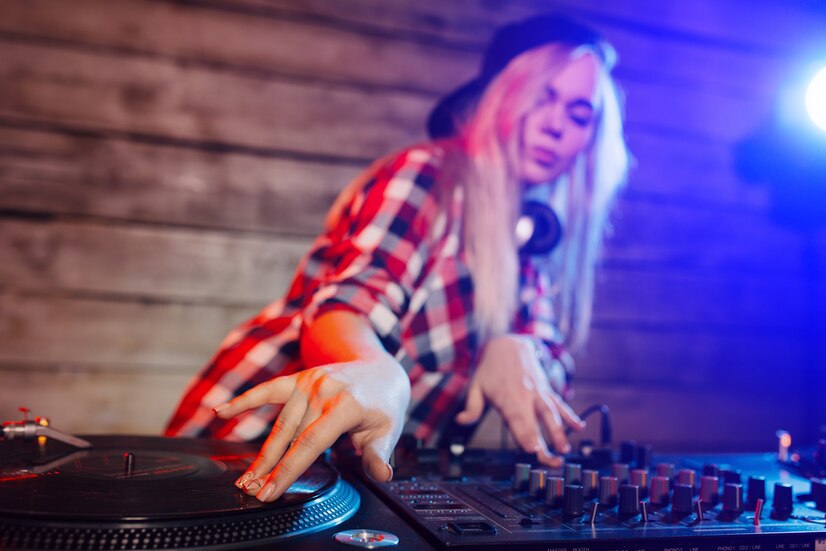The DJ mixer is an essential piece of equipment for every DJ. With the right mixer, you can easily blend, mix, and create unique sounds. Whether you’re a beginner or a seasoned DJ, investing in a high-quality mixer can take your DJ skills to the next level.
Why is a DJ mixer important?
A DJ mixer allows you to control the sound and flow of your music. You can adjust the volume levels, add effects, and blend different tracks together to create seamless transitions. A mixer gives you the flexibility and control to create a personalized performance that sets you apart from other DJs.
Types of DJ mixers
There are several different types of DJ mixers available on the market, including analog mixers, digital mixers, and all-in-one DJ controllers. Each type of mixer has its own set of features and benefits, so it’s important to consider your specific needs before making a purchase.
Analog mixers
Analog mixers are classic DJ equipment that has been around for decades. They are simple to use and provide a warm, natural sound that is ideal for live performances. Analog mixers typically have fewer features than digital mixers, but they are still popular among experienced DJs who prefer a more traditional approach to the mix.
Digital mixers
Digital mixers are the most versatile type of mixer on the market. They offer a range of advanced features, including effects, EQ, and digital sound processing. Digital mixers are ideal for DJs who want to add a unique touch to their performances and have the technical skills to take advantage of the advanced features.
All-in-one DJ controllers
All-in-one DJ controllers are an excellent option for beginner DJs who are looking for an affordable, easy-to-use mixer. These mixers come with built-in sound cards, effects, and software, making it easy to get started with DJing right out of the box.
Factors to consider when choosing a DJ mixer
There are several factors to consider when choosing a DJ mixer, including:
- Compatibility with your DJ setup
- Number of channels
- Effects and sound processing
- EQ controls
- Built-in sound card
- User interface
- Price
Using effects
Effects are an essential tool for any DJ, and with the right mixer, you can easily add effects to your music. Whether you want to create a unique sound or enhance the overall performance, effects can help you achieve your goals. Some popular effects include reverb, delay, echo, and chorus.
Tips for using effects
Experiment with different effects to find the ones that work best for your music.
Use effects sparingly to avoid overwhelming the audience.
Use effects to create a sense of movement and flow in your performance.
Practice using effects to ensure that you can use them smoothly and effectively during live performances.
Sound Processing
Sound processing is an important aspect of DJing that allows you to adjust the overall sound of your performance. With the right mixer, you can easily adjust the EQ, gain, and volume levels to ensure that your music sounds its best.
Tips for sound processing
Experiment with different EQ settings to find the sound that works best for your music.
Use gain to control the overall volume levels of your performance.
Pay attention to the volume levels of individual tracks to avoid audio clipping.
Practice adjusting the sound processing during your performance to ensure that you can make quick and effective adjustments as needed.
Conclusion
Investing in the right AIAIAI can make all the difference in your DJing skills. Whether you’re a beginner or a seasoned DJ, it’s important to consider your specific needs and choose a mixer that will help you achieve your goals. With so many options on the market, you’re sure to find the perfect mixer for your setup.
